Acetyl Hexapeptide (Argireline) 10mg
- Estimated Delivery : Up to 4 business days
- Free Shipping & Returns : On all orders over $200
Acetyl Hexapeptide-8 (commonly marketed as Argireline) is a synthetic hexapeptide derived from a SNAP-25 fragment. Topically applied in cosmetic and formulation research, it is studied for reducing the appearance of dynamic wrinkles by modulating neurotransmitter release at the neuromuscular junction and supporting skin texture and elasticity. It is widely used in serums and topical R&D as a non-injectable, research-grade peptide ingredient. [1][2]
Key benefits (research context)
-
May reduce the appearance of dynamic wrinkles and fine lines in topical/ex-vivo models. [2][3]
-
Acts as a biomimetic of SNAP-25 and is proposed to interfere with SNARE-complex formation, decreasing neurotransmitter-driven muscle micro-contractions (the so-called ÒBotox-likeÓ mechanism). [2]
-
Compatible with water-based formulations and commonly incorporated into serums, creams, and lotions for topical formulation studies. [4][5]
Sequence & Chemical Data
-
Amino acid sequence: Ac-Glu-Glu-Met-Gln-Arg-Arg-NH?. [1]
-
CAS No.: 616204-22-9. [1]
-
Molecular weight: ~889 Da. [1]
-
Appearance: White to off-white lyophilized powder. [1]
Formulation & Recommended Research Usage
Topical / Ex-vivo formulation (exploratory R&D)
-
Reported cosmetic use concentrations vary; published formulation and market products range from ~0.001% up to 10% in commercial serums (most safety/industry surveys report typical leave-on use at ²0.005%; many commercial serums use higher concentrations Ñ start conservatively). Begin formulation experiments in the range 0.001% Ð 0.5% w/v, validate stability and activity in your vehicle, and perform irritation/safety testing. [4][6]
In-vitro / cell culture
-
Typical starting points for cell-based assays: 0.1 Ð 100 µM (titrate to cell type and endpoint). Use proper controls for neuromuscular or neurotransmitter-release assays. [2][5]
Delivery notes
-
Argireline is hydrophilic; its ability to reach deeper neuromuscular junction targets from topical formulations is limited and depends strongly on vehicle design, enhancers, and emulsion type. Emulsion composition, particle size and penetration enhancers influence delivery; validate penetration in your ex-vivo model. [5][8]
Safety & Stability
-
Considered generally well-tolerated in topical applications within reported cosmetic use ranges; however, regulatory and safety reviews note that higher concentrations or novel routes may require additional safety evaluation. Conduct patch/irritation testing and stability/COA verification for each lot. [6]
-
Store lyophilized peptide frozen or refrigerated per COA; avoid repeated freezeÐthaw cycles. Reconstitute into sterile water or appropriate aqueous buffer immediately before use.
Packaging & Storage
-
Packaging: 10 mg amber glass vial with desiccant.
-
Shelf life: Up to 12 months unopened (confirm with COA).
-
Storage: ?20 ¡C recommended for long-term; 2Ð8 ¡C acceptable short term. Protect from moisture and light.
For laboratory, cosmetic R&D, and analytical use only. Not for human or veterinary consumption.
Do not market or label this product with therapeutic or clinical claims. Always validate formulation tolerability and regulatory status for your intended application.

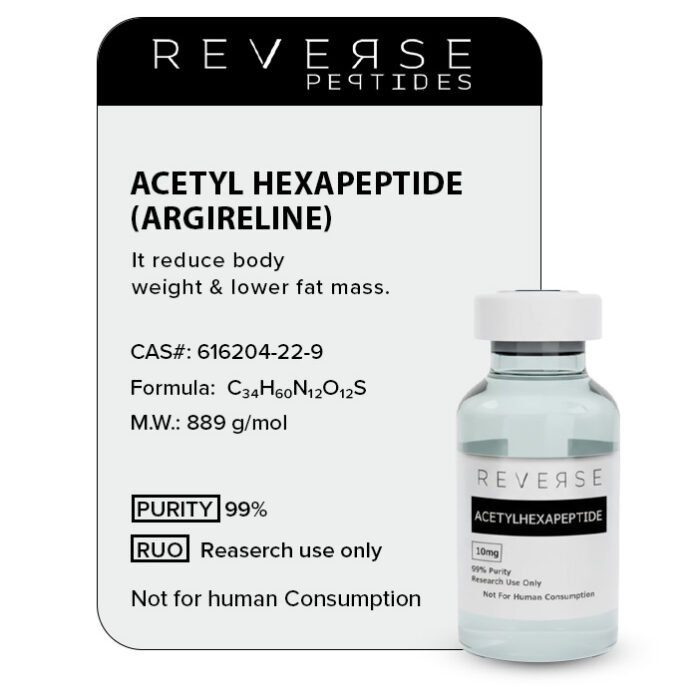
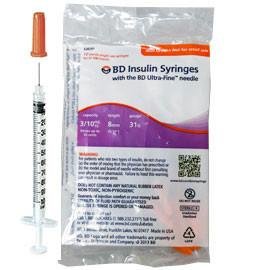
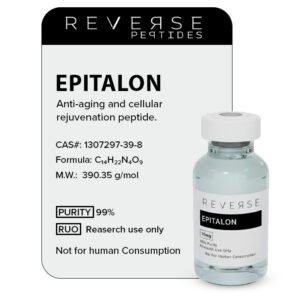
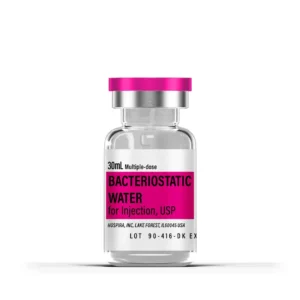
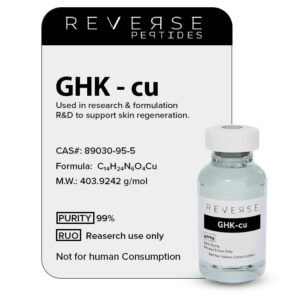
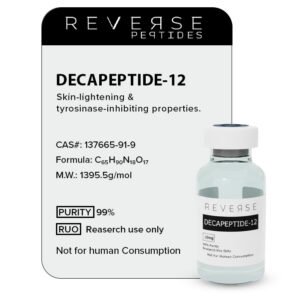

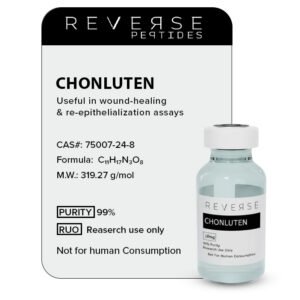 Chonluten 10mg
Chonluten 10mg 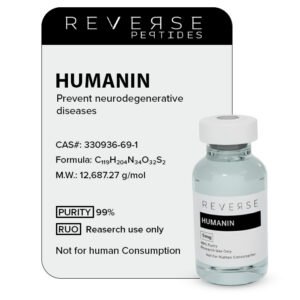 Humanin 5mg
Humanin 5mg 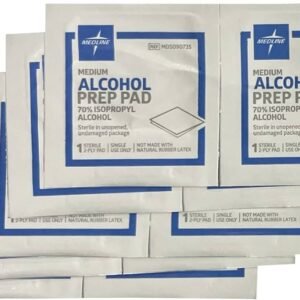

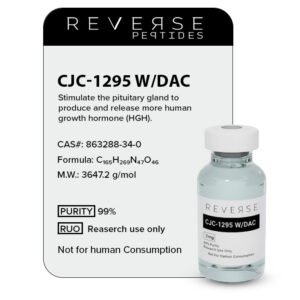
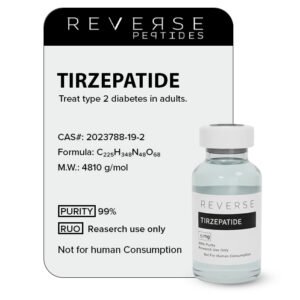
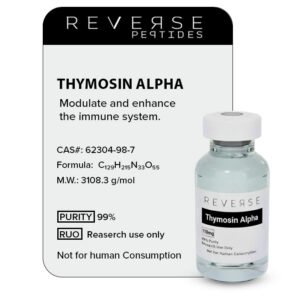
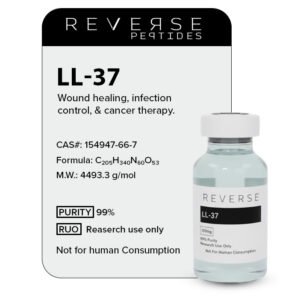
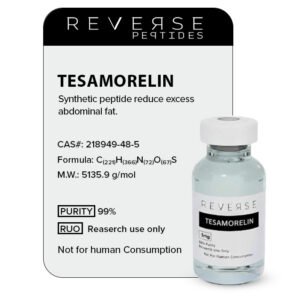
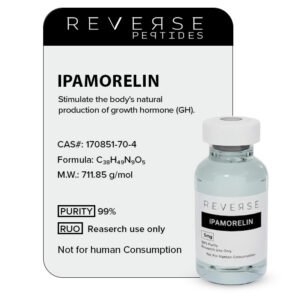
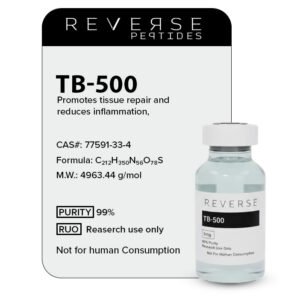
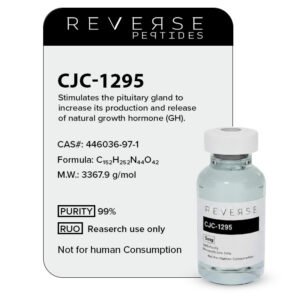
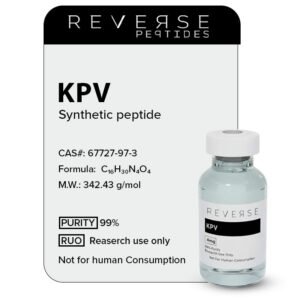
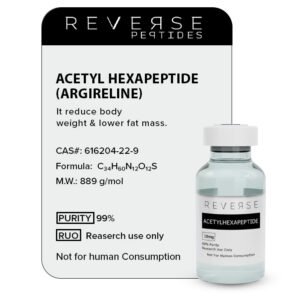
Reviews
There are no reviews yet.